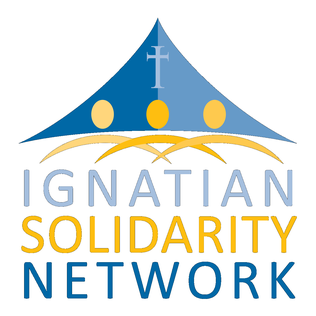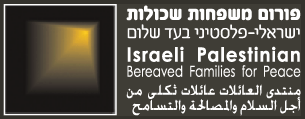 W
WIn order to facilitate organized, determined, and principled opposition to the wars, people have often founded anti-war organizations. These groups range from temporary coalitions which address one war or pending war, to more permanent structured organizations which work to end the concept of war and the factors which lead to large-scale destructive conflicts. The overwhelming majority do so in a nonviolent manner. The following list of anti-war organizations highlights past and present anti-war groups from across the world.
 W
WThe 1973 World Congress of Peace Forces was held in Moscow, Russian SFSR, Soviet Union, October 25-October 31, 1973. At the congress over 3200 delegates from 143 countries, representing more than 1100 political parties, national organizations and movements. Representatives from 123 international organizations took part in the event.
 W
WThe Center for Global Nonkilling is an international non-profit organization focused on the promotion of change toward the measurable goal of a killing-free world. The Center for Global Nonkilling is an NGO in Special Consultative Status with the United Nations Economic and Social Council and a participant organization of the World Health Organization's Violence Prevention Alliance.
 W
WChristian Peacemaker Teams (CPT) is an international organization set up to support teams of peace workers in conflict areas around the world. The organization uses these teams to achieve its aims of lower levels of violence, nonviolent direct action, human rights documentation and nonviolence training in direct action. CPT sums up their work as being "committed to reducing violence by 'getting in the way'".
 W
WThe Elders is an international non-governmental organisation of public figures noted as elder statesmen, peace activists, and human rights advocates, who were brought together by Nelson Mandela in 2007. They describe themselves as "independent global leaders working together for peace and human rights". The goal Mandela set for The Elders was to use their "almost 1,000 years of collective experience" to work on solutions for seemingly insurmountable problems such as climate change, HIV/AIDS, and poverty, as well as to "use their political independence to help resolve some of the world's most intractable conflicts".
 W
WThe Friends' Ambulance Unit (FAU) was a volunteer ambulance service, founded by individual members of the British Religious Society of Friends (Quakers), in line with their Peace Testimony. The FAU operated from 1914–1919, 1939–1946 and 1946–1959 in 25 different countries around the world. It was independent of the Quakers' organisation and chiefly staffed by registered conscientious objectors.
 W
WThe Global Partnership for the Prevention of Armed Conflict (GPPAC) is a member-led network of civil society organisations (CSOs) active in the field of conflict prevention and peacebuilding across the world. The network is organised around 15 regional networks of local organisations, each region having its own priorities, character and agenda. Each region is represented in an International Steering Group, which determines joint global priorities and actions. GPPAC was initiated through extensive consultations in 2003-4, and officially launched as part of a global conference in 2005 at the UN headquarters in New York.
 W
WIgnatian Solidarity Network (ISN) organizes Jesuit schools and universities in the United States, together with their alumni and all interested parties, in training and advocacy for social justice leadership. This is in pursuit of "the service of faith and promotion of justice" that was emphasized by Jesuit Father General Pedro Arrupe and by the Catholic bishops after Vatican II. The founding of ISN was in response to the US connection in the 1989 murders of Jesuits in El Salvador.
 W
WThe International Agrarian Bureau, commonly known as the Green International, was founded in 1921 by the agrarian parties of Bulgaria, Czechoslovakia, Poland and Yugoslavia. The creation of a continental association of peasants was championed by Aleksandar Stamboliyski of the Bulgarian Agrarian National Union, but originated with earlier attempts by Georg Heim. Following Stamboliyski's downfall in 1923, the IAB came to be dominated by the Republican Party of Farmers and Peasants in Czechoslovakia, whose member Karel Mečíř served as its first leader. Mečíř was able to extend the IAB beyond its core in Slavic Europe, obtaining support from the National Peasants' Party in Greater Romania; as an ideologue, Milan Hodža introduced the Green International to European federalism.
 W
WThe International Centre for Reconciliation was based at Coventry Cathedral, UK, and was established in 1940 after the destruction of the cathedral in the Second World War. Rather than seek revenge for the devastation caused, the centre's founders vowed to promote reconciliation in areas of conflict. This began in the former Communist bloc, but has since broadened to focus on the conflict between the three major monotheistic faiths. In 2008, the ICR ceased to exist as an individual entity, and its work was taken on more closely by Coventry Cathedral under the Coventry Cathedral Reconciliation Ministry banner.
 W
WThe Jesuit Refugee Service (JRS) is an international Catholic organisation with a mission to accompany, serve, and advocate on behalf of refugees and other forcibly displaced persons, that they may heal, learn, and determine their own future. Founded in November 1980 as a work of the Society of Jesus, JRS was officially registered on 19 March 2000 in Vatican City as a foundation. The impetus to found JRS came from the then superior general of the Jesuits, Pedro Arrupe, who was inspired to action by the plight of Vietnamese boat people. JRS has programmes in over 50 countries. The areas of work are in the field of education, emergency assistance, health care, livelihoods, reconciliation, and psychosocial support. JRS is also involved in advocacy and human rights work. This involves ensuring that refugees are afforded their full rights as guaranteed by the 1951 Geneva Convention relating to the Status of Refugees and working to strengthen the protection afforded to Internally displaced persons (IDPs). JRS's international headquarters is located in Rome at the Society's General Curia. The International Director is Rev. Thomas H. Smolich SJ.
 W
WJesuitenmission, the mission arm of the Society of Jesus in Germany, directs its assistance to the German Jesuit foreign missions, mainly in India, East Timor, China, and Zimbabwe. Pursuing the service of faith and promotion of justice, its works include combating poverty, refugee assistance, education, health, ecology, human rights and pastoral work, while fostering dialogue between cultures and religions.
 W
WThe League of Nations archives is a collection of the historical records and official documents of the League of Nations. The collection is housed at the United Nations Office at Geneva (UNOG), where it is managed by the Institutional Memory Section (IMS) of the UN Library & Archives Geneva. It consists of approximately 15 million pages of content and comprises nearly 3 linear kilometers. The League of Nations archives' historical significance is recognized by UNESCO, with its inscription on the Memory of the World Register in 2009.
 W
WMayors for Peace is an international organization of cities dedicated to the promotion of peace that was established in 1982 at the initiative of then Mayor of Hiroshima Takeshi Araki, in response to the deaths of around 140,000 people due to the atomic bombing of the city on August 6, 1945.
 W
WNonviolence International (NI) acts as a network of resource centers that promote the use of nonviolence and nonviolent resistance. They have maintained relationships with activists in a number of countries, with their most recent projects taking place in Palestine, Sudan and the Ukraine. They partnered with International Center for Nonviolent Conflict to update Gene Sharp's seminal work on 198 methods of nonviolent action through a book publication. NI has also produced a comprehensive database of nonviolence tactics, which stands as the largest collection of nonviolent tactics in the world. They partner with Rutgers University to provide the largest collection of nonviolence training materials in the world.
 W
WThe Parents Circle-Families Forum (PCFF) is a grassroots organization of Palestinian and Israeli families who have lost immediate family members due to the conflict. The PCFF operates under the principle that a process of reconciliation is a prerequisite for achieving a sustained peace. The PCFF is also known as Israeli Palestinian Bereaved Families for Reconciliation and Peace and as Bereaved Families Supporting Peace, Reconciliation, and Tolerance.
 W
WPax Christi International is an international Catholic Christian peace movement. The Pax Christi International website declares its mission is "to transform a world shaken by violence, terrorism, deepening inequalities, and global insecurity."
 W
WPeace Now is a non-governmental organization, "liberal advocacy" and activist group in Israel with the aim of promoting a two-state solution to the Israeli-Palestinian conflict.
 W
WThe Peres Center for Peace, located in Jaffa, Israel, is an independent non-profit, non-governmental, and non-political organization founded in 1996 by Nobel Peace Laureate and former President of Israel Shimon Peres. Its aim is to further Peres' vision of people in the Middle East working together to build peace through socio-economic cooperation and development and people-to-people interaction.
 W
WProject Dastaan is a peace-building initiative that reconnects displaced refugees of the 1947 Partition of India, Pakistan and Bangladesh with their childhood communities and villages through bespoke 360-degree digital experiences. Dastaan means 'story' in several South Asian languages.
 W
WThe Raging Grannies are activist organizations in many cities and towns in Canada, the United States, and in other countries. They are social justice activists, all women old enough to be grandmothers, who dress up in clothes that mock stereotypes of older women, and sing songs at protests. They typically write the lyrics themselves, putting their political messages to the tunes of well-known songs. Their activism includes peace and environmental causes.
 W
WServas International is a not for profit organisation for arranging homestays and hospitality.
 W
WThe Ministry of Temporarily Occupied Territories and IDPs is a government ministry in Ukraine officially established on 20 April 2016 to manage occupied parts of Donetsk, Luhansk and Crimea regions affected by Russian military intervention of 2014.
 W
WThe Unification movement, also known as the Unification Church (UC), is a worldwide new religious movement whose members are sometimes colloquially called "Moonies". It was officially founded in 1954 under the name Holy Spirit Association for the Unification of World Christianity (HSA-UWC) in Seoul, South Korea by Sun Myung Moon (1920–2012), a Korean religious leader also known for his business ventures and engagement in social and political causes.
 W
WThe Women's International League for Peace and Freedom (WILPF) is a non-profit non-governmental organization working "to bring together women of different political views and philosophical and religious backgrounds determined to study and make known the causes of war and work for a permanent peace" and to unite women worldwide who oppose oppression and exploitation. WILPF has national sections in 37 countries.
 W
WThe World Peace Congress, founded by Professor Rajani Kannepalli Kanth in 2007, is a non-governmental organization dedicated to constructing an institutional basis for world peace, unmediated by state, government or politics. The Congress holds conferences and dialogues, regularly, attended by people with various backgrounds. These dialogues produced resolutions adopted initially at the first Congress in Salt Lake City, to ultimately achieve the goal of the Congress - to renounce war as a means of social and political policy. Later on, the World Peace Congress asked the United Nations to declare war as illegal by sending the Renunciation of War Resolution, resolutions adopted at the third World Peace Thai Congress in 2010, to UN Secretary General, Ban Ki-Moon, requesting him to ask all Heads of States of the UN to adopt the resolutions by suitably amending their individual Constitutions, or by enacting a special law by their legislatures. Since its foundation, the World Peace Congress has a wide range of participants, including Martin Almada, Shabana Azmi, A. Balasubramaniam, Roy Bhaskar, Oliver DeMille, Robert Jensen, Yinhe Li, Rajiv Malhotra, Ruth Manorama, N. Radhakrishnan, Sulak Sivaraksa, Tenzin Tethong, and John Zerzan.